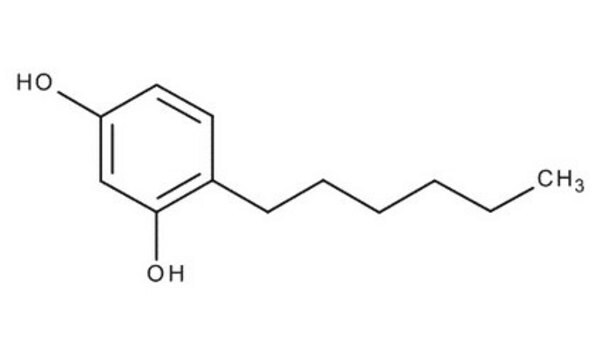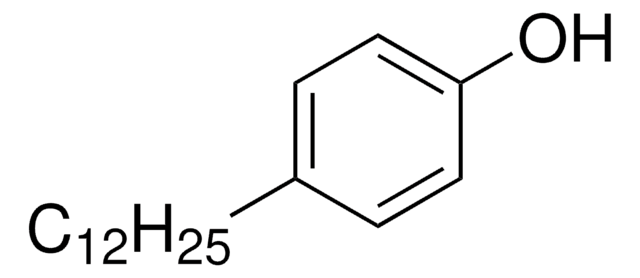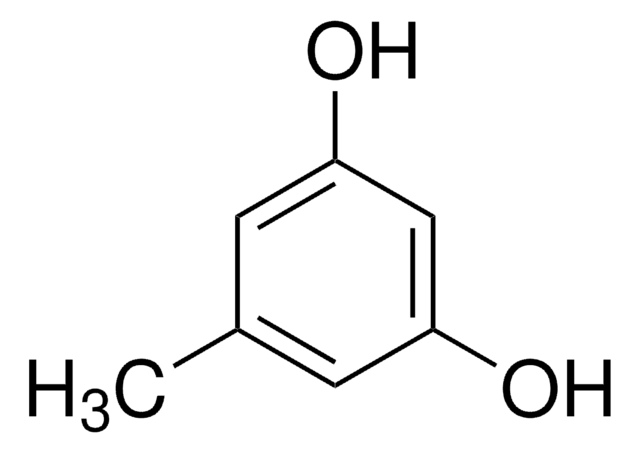91822
5-Pentadecylresorcinol
analytical standard
Sinónimos:
1,3-Dihydroxy-5-pentadecylbenzene, 5-Pentadecyl-1,3-benzenediol
About This Item
Productos recomendados
grade
analytical standard
Quality Level
assay
≥95.0% (HPLC)
shelf life
limited shelf life, expiry date on the label
technique(s)
HPLC: suitable
gas chromatography (GC): suitable
application(s)
cleaning products
cosmetics
food and beverages
personal care
format
neat
storage temp.
2-8°C
SMILES string
CCCCCCCCCCCCCCCc1cc(O)cc(O)c1
InChI
1S/C21H36O2/c1-2-3-4-5-6-7-8-9-10-11-12-13-14-15-19-16-20(22)18-21(23)17-19/h16-18,22-23H,2-15H2,1H3
InChI key
KVVSCMOUFCNCGX-UHFFFAOYSA-N
General description
Application
- Goji berries using ultra-high-pressure liquid chromatography coupled with quadrupole-time-of-flight mass spectrometry (UHPLC-ESI-QTOF-MS).
- Mango (Mangifera indica L.) peels using high-performance liquid chromatography/atmospheric pressure chemical ionization mass spectrometry (HPLC/APCI-MS).
Packaging
Recommended products
signalword
Warning
hcodes
Hazard Classifications
Eye Irrit. 2
Storage Class
11 - Combustible Solids
wgk_germany
WGK 3
flash_point_f
Not applicable
flash_point_c
Not applicable
Elija entre una de las versiones más recientes:
¿Ya tiene este producto?
Encuentre la documentación para los productos que ha comprado recientemente en la Biblioteca de documentos.
Los clientes también vieron
Nuestro equipo de científicos tiene experiencia en todas las áreas de investigación: Ciencias de la vida, Ciencia de los materiales, Síntesis química, Cromatografía, Analítica y muchas otras.
Póngase en contacto con el Servicio técnico












